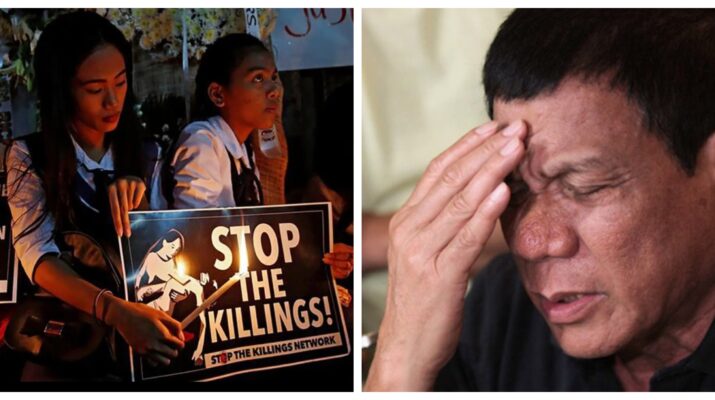“A fish often gets caught by its mouth,” so goes the age-old adage. What this saying conveys is that a person often gets caught in their misdeeds by something he or she says.
The maxim also encapsulates former president Rodrigo Duterte’s appearance at the Senate’s Blue Ribbon Committee hearing into his so-called “war on drugs” exceptionally well. After repeatedly declining requests to appear before the House of Representatives’ (HoR) inquiry into extra-judicial killings (EJKs) that occurred under his watch, the former Chief Executive agreed to face the upper house instead.
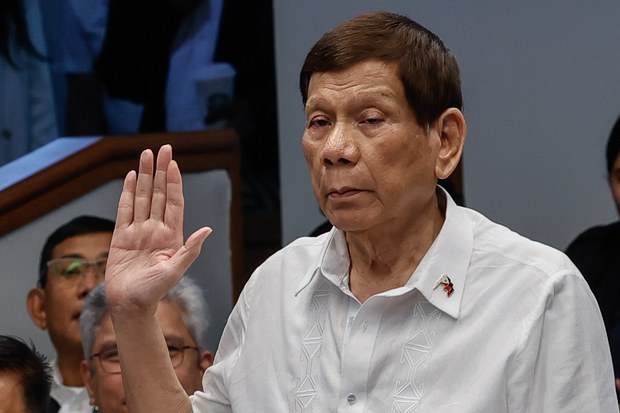
It is easy to see why Duterte was more open to attend the Senate’s investigation rather than the House. In the upper chamber he was flanked by his loyalists: Senators Robin Padilla, Bong Go, and Bato dela Rosa – the latter, a key figure in the implementation of the drug war himself.
Many questioned how objective the Senate hearing would be given the participation of those three senators. Even before the hearing, Sen. Bato publicly defended the drug war himself and said he had “no regrets” about it, and that he would “do it again” if given the chance.
Bato, who served as Philippine National Police (PNP) chief during the early years of the Duterte administration, repeatedly aided his former boss in the hearing. At times when Duterte said something potentially incriminating, the cop-turned-senator would say that the former president was merely “joking” or “exaggerating”.
This was a frequent defense used by Duterte when he was president; after publicly saying something outlandish, he would then say that the statement was in jest. The trouble with using that justification regarding his recent outbursts is that during the Senate inquiry, Duterte was under oath.
Anything he said under oath that was contrary to the truth is grounds for perjury. But even worse for Duterte and his allies, the damning admissions he made under oath could then be admitted as evidence in a different judicial body – specifically the International Criminal Court (ICC).
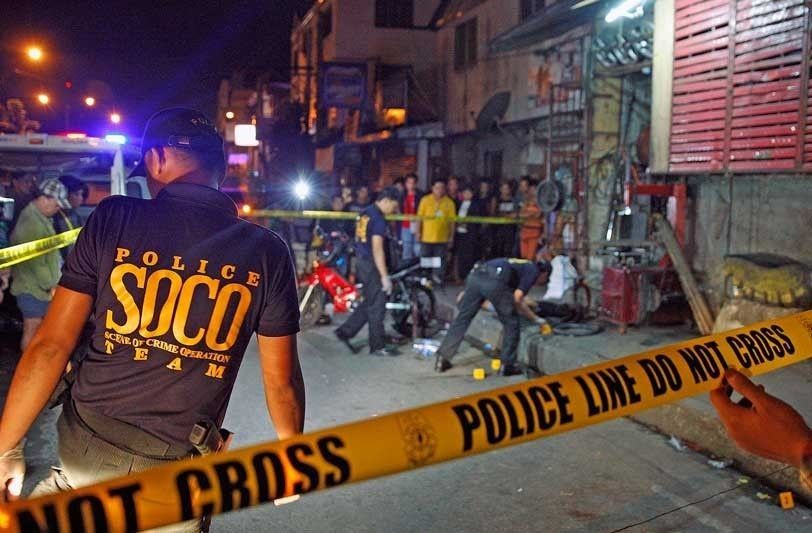
The global human rights body opened an investigation into the Duterte administration in 2018 over state-sanctioned killings of civilians under the pretext of the “War on Drugs”. A decision made by the ICC in January 2023 authorized its prosecutor to investigate evidence in relation to these accusations, citing the lack of domestic legal proceedings being conducted in the Philippines over these drug war deaths.
Throughout the course of the Senate investigation, former president Duterte was unapologetic about the course of action he took to tackle the drug trade in the country. He explicitly admitted the existence of the infamous “Davao Death Squads“, which were responsible for vigilante killings in his hometown of Davao City while he was the mayor there.
Though rather than police personnel, Duterte claimed that his death squad was composed of “gangsters”. He bared that he personally gave orders to this death squad to kill targets around Davao, adding that he would tell his hitmen: “kill this person, because if you do not, I will kill you now”.
When he assumed the presidency, Duterte elevated this model he used in Davao to the national level. He told the Senate Blue Ribbon Committee that he “ordered” the police to “encourage” drug suspects to fight back so they can shoot them dead.
“What I said is this, let’s be frank, I said encourage the criminal to fight, encourage them to draw their guns. That was my instruction, encourage them to fight, and if they fight, then kill them so my problem in my city is done,” the former chief executive told the Senate.
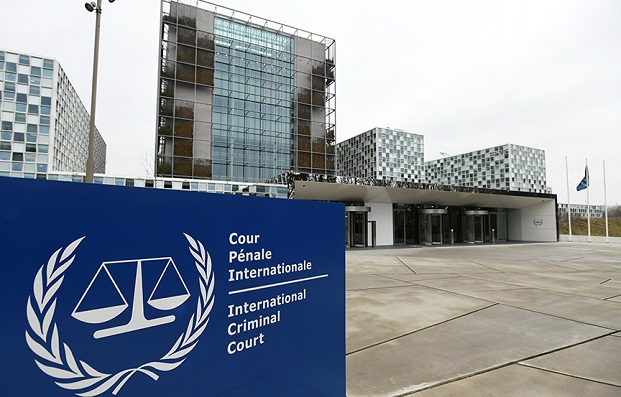
Further linking the police to these death squads, Duterte went on to say that PNP chiefs during his term in office acted as death squad “commanders” themselves. He said all the police generals present in the Senate hearing all led death squads precisely because they killed in the line of duty; the former police leaders present were: Archie Gamboa, Vicente Danao, and Debold Sinas; former drugs board chairperson Catalino Cuy; Police Major General Romeo Caramat; and of course, now Senator Bato dela Rosa.
Singling out the latter specifically, Duterte said of Bato: “One of the senators there, Senator Dela Rosa, he was also part of the death squad because they were police directors handling, controlling crimes in the city.”
It can be remembered that Arturo Lascañas, a former death squad assassin-turned-witness for the ICC case against Duterte, revealed the same facts in his affidavit which has been accepted as evidence by the international tribunal. He said Dela Rosa carried out kill orders from Duterte for years in Davao, then took them to the national level when he became the PNP chief.
Of the other PNP generals mentioned, Lascañas accused Danao of being behind a series of crimes in Davao City, including the killings of suspected gold swindlers, the abduction and killing of suspected shoplifters, the killing of Toyota-Davao employees, and the alleged assassination of a former DDS member.
Not only was Duterte under oath when he made this admission, but his testimony also corroborates the earlier sworn statements of death squad whistleblowers like Lascañas.
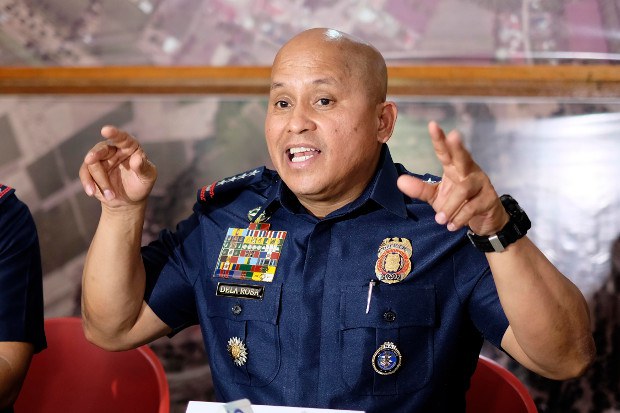
As much as these open admissions from Duterte made news headlines, equally covered was the brash, abrasive way he answered questions from senators – particularly from long-time critic, Risa Hontiveros. The former president was also confronted by former senator Leila de Lima, the opposition legislator he and his allies framed as having links with drug lords which landed her in prison.
Duterte traded barbs with Hontiveros, often interrupting her as she interpellated him during the Senate hearing. In trademark fashion, the former president repeatedly cursed during his Senate appearance – leading to Hontiveros telling him off over it – but something which his supporters, especially online, seemed to enjoy.
In contrast to other witnesses summoned before the Senate or HoR hearings, who appeared nervous and were even driven to tears due to the constant grilling of Senators and House members, Duterte appeared to have the upper hand by projecting his normal, brutish self. Some pro-Duterte political observers even declared that the former president was merely “toying” with the upper chamber during the hearing.
However, Duterte’s stunt during the Senate hearing was done under oath. The pronouncements he made in that inquiry will be taken as fact, and anything he said that was incriminating could be used in the ICC case against him related to crimes against humanity during his war on drugs.
Another of Duterte’s political arch-enemies, former senator Antonio Trillanes IV, publicly declared shortly after the hearing that the transcript of the former Davao mayor’s testimony had been sent to the ICC already for their own use. Given the number of incriminating statements he made, it will be surprising if Duterte’s transcript would not be taken seriously by the international tribunal.
As the saying goes, a fish often gets caught by its mouth. While Duterte supporters may be rejoicing that their political idol was undeterred facing the Senate, they need to be cognizant that he may have also made a formal confession by his appearance.
One must not mistake courage for stupidity.
#InvestigateDuterte is TheDefiant.net’s campaign to bring former President Rodrigo Duterte and his cohorts to justice for the crimes against humanity they committed while in government. You can read more stories in this series by clicking here.

